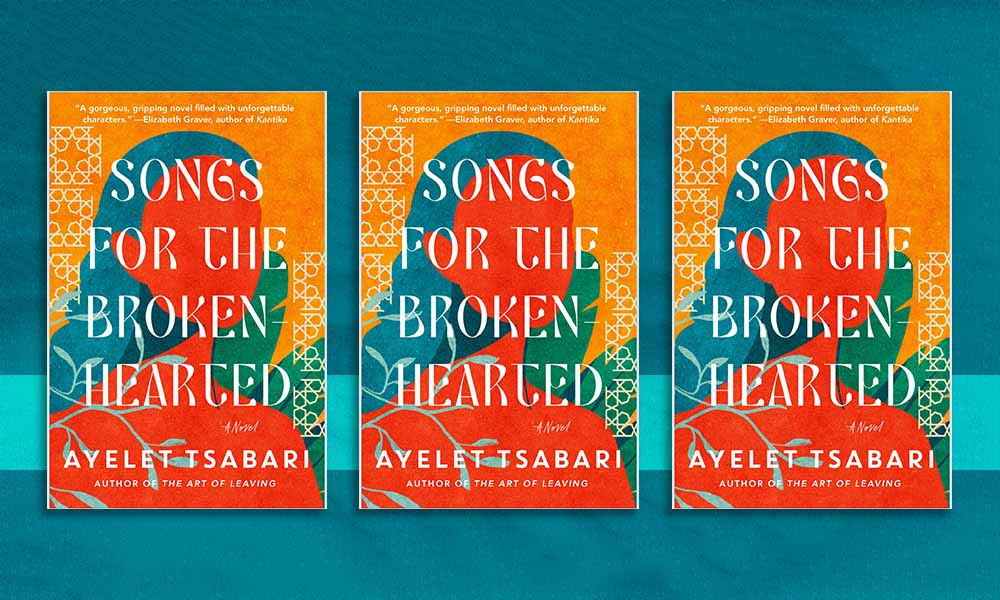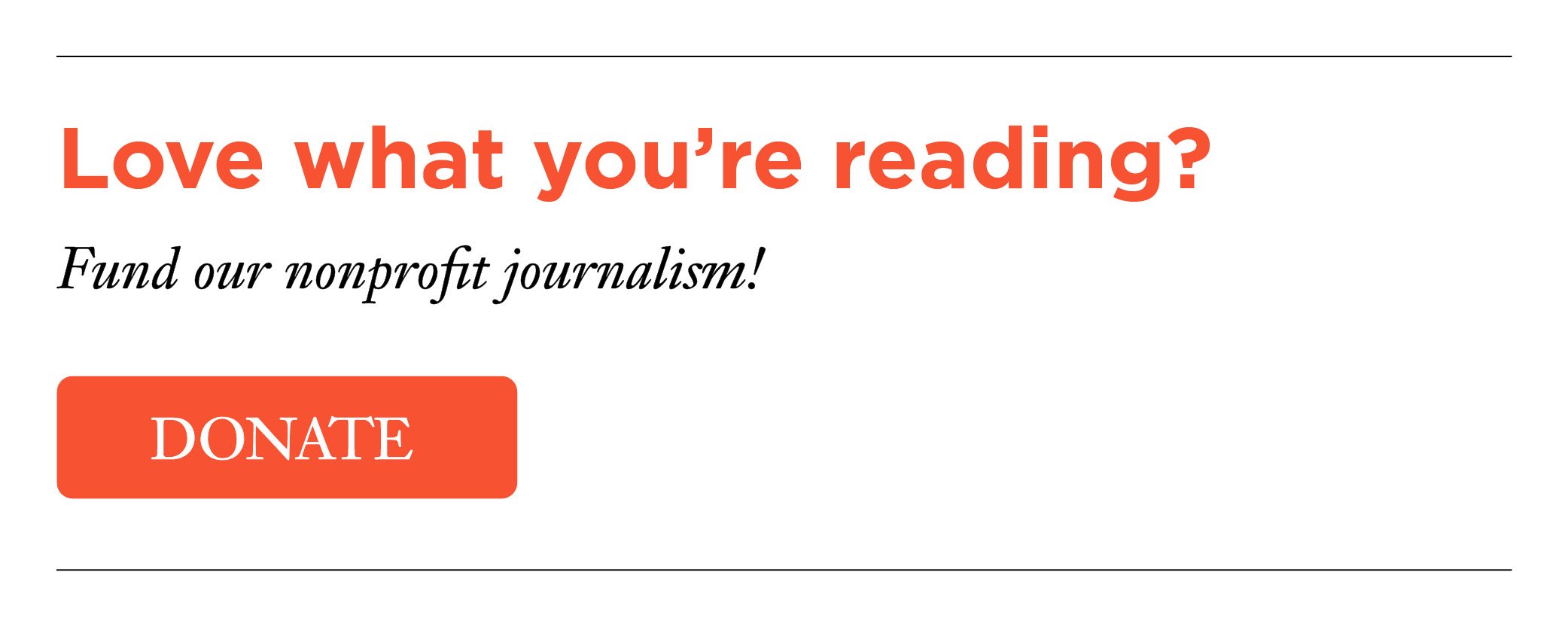Interview | An Israeli-Yemeni Woman Embraces the Culture She Tried for Years to Avoid

Songs for the Brokenhearted
By Ayelet Tsabari
Random House, 352 pp
Award-winning Israeli-Canadian writer Ayelet Tsabari understands why readers might think her debut novel, Songs for the Brokenhearted, is autobiographical. Like Tsabari, the main character is a Yemeni Jew whose beloved father dies when she is young, who has a conflicted relationship with her mother, and who spends most of her twenties away from Israel, living or traveling in North America and southeast Asia. It’s only after Zohara returns to Israel in her early thirties that she begins to understand and appreciate the cultural influences that shaped her and that she has tried so hard to either fight or ignore.
Those who read Tsabari’s acclaimed 2019 memoir, The Art of Leaving, will recognize those themes. However, there are key differences between Tsabari and her main character. Among them: Zohara returns to Israel after her mother, Saida, dies. Tsabari’s mother was very much alive when the author returned from her extended stints abroad in her early thirties. Also unlike Zohara, who is a first-generation Israeli growing up in the 1970s and 1980s, Tsabari is the granddaughter of Yemeni immigrants.
Tsabari talked with Moment about the inspiration for the novel, why she changed her mind about its original direction and her experiences living in “Ashkenormative” North America.
Moment: What’s your reaction when people think your fiction is autobiographical?
Ayelet Tsabari: I find it really interesting. Overall, as a big-picture story, it’s not autobiographical, but I identify with Zohara so much because she is me—everyone is me, all of them.
I’ve written a memoir previously. I’m comfortable writing about my own life, but when I write fiction, I like to imagine. When you write [fiction] you take that kernel of experience and this kernel of truth from your life, and then you let it kind of splinter and explode into its own thing. And of course, there’s always truth, in so many tiny ways—the neighborhood where the story is set is where my parents grew up, and I set it in a time that I knew very well, and some of the relationships and some of the people and even little things that happen.
One of the heartbreaking stories in the novel is Saida’s unresolved grief over losing her toddler son while living in a transition camp after arriving in Israel in the early 1950s. Thiscasts a long shadow over her new family and contributes to tension in her relationship with Zohara. In your memoir, you wrote about the Yemeni children who went missing from these transition camps. The government said they’d died, but many parents believed their children had been taken from them and given to Ashkenazi Holocaust survivors. What made you want to revisit that in a fictional context?
It was a story that was silenced by the authorities and the media, and the parents who lost children were gaslit. They were made to feel it was their “Oriental imagination.” My grandmother arrived in 1934 in what was then Mandate Palestine, so they did not experience the transition camps. But my aunt by marriage, my uncle’s wife, was taken to the hospital as a toddler for a common cold, and when her parents came the next day they were told she had died. Her father would not hear of it. He basically ripped the hospital to pieces and found her. And she was dressed in other clothes.
So she could have become one of the children who was taken from her parents?
She could have been. Sadly, it was a common story in the community. Before my daughter was born, I thought this was going to be the focus of my novel. I was interviewing elderly Yemeni women as research, and I found myself crying with them as they told me about losing their children. Back in the day, as a result of the gaslighting and silencing, the families didn’t talk about it, and often the younger generation were surprised to discover that it had happened in their families too.


You wound up using the missing child storyline as a subplot. What made you change your mind about the direction of the novel?
Once I had a baby, I could not write about this. It was too hard. It was too painful. I literally started sobbing at my desk. I had to tell my editors and my agent, “I’m not doing this. I’m not writing this book” and eventually I found my way into this novel and I said, I’m still going to have this in it, but it’s going to be a background story because this is the reality of many Yemeni families in Israel, that this is in their background.
How did you settle on telling the story about a young woman who delves into her mother’s past and comes to a newfound respect when she learns there’s so much more to her mother than she imagined—including that her mother wrote and sang powerful love songs?
I wanted to tell the story of Yemeni Jewish women because I grew up with these really powerful strong women—my mom has three sisters and my grandmother was such a matriarch— and yet the more I learned, the more I understood how silenced and how oppressed they were in Yemen, and even in the community in Israel; men had so much more power. It was a contradiction I couldn’t quite reconcile.
How did the tradition of Yemeni women as songwriters become a major plotline?
When I discovered the songs, it felt like an answer. I discovered there was this amazing tradition of women’s oral poetry, unwritten because they were illiterate. They were composing songs about their lives, about their stories, about their pain, about their heartaches, about their joys. They were claiming their stories, reclaiming their narrative, and voicing it. There was something quite subversive and feminist about it.
A consistent element in Songs for the Brokenhearted is Zohara’s discomfort with her Yemeni heritage: she spends a lot of time wishing she were Ashkenazi because she thinks maybe she’d be more accepted and acceptable. As a graduate student in New York, she feels even more at sea. Some of the culture-clash scenes you’ve written are so potent they made me embarrassed for everybody—especially the drunk film student who refers to Zohara as “the Yemeni girl” who doesn’t look Jewish because of her dark skin and “exotic” curly hair.
I think the North American Jewish experience is very what they call, nowadays, Ashkenormative or Ashkenazi normative. When I first moved to Canada, I felt like I didn’t really exist as a Jewish person. In Vancouver, when I moved there, there was hardly any Israeli community. And it was stunning to me how little news there was about Jewish holidays. One time there was actually an article about Passover and I was just thrilled—something Jewish!—and I opened it and the entire article was about different methods of preparation of matzah ball soup. And I’d never had matzah ball soup at that point. It was such a feeling of erasure. It looked as if people didn’t know what to make of me. I remember someone on the bus once saying to me, “Wait—you’re Jewish but your family is from Yemen? Are you Jewish or are you an Arab?” and I remember saying, “I am both,” and someone turned to me and said, “Peace, sister!”
I feel like you use the novel to teach a bit of the history of Yemeni Jews, not just about the missing children and the music, but about social stratification. Growing up Ashkenazi in North America, my understanding was that Israel had a homogenous population of Jews who were treated equally and respectfully. You make it pretty clear that that’s not the case.
Celebrating Yemeni Jews and Mizrahi stories has been one of my goals with this book and my work, in general. I think what you describe here is a common misconception in North America, because Ashkenazi Jews are a majority there. Not so in Israel, obviously. We’re talking 50-50 [population split], which is another thing people in North America are surprised to hear. But despite this, disparities in higher education and income still persist.
And Mizrahi authors have still not made it into the canon in Israel, so most Israeli literature that is being read in Israel and abroad is written by Ashkenazi authors. I wanted to grant my community a place in literature.
You moved back to Israel six years ago, but you still make regular trips to North America to teach. Do you think things are getting better here in terms of people’s understanding about the differences between Jews from different cultures? There definitely seems to be more in the media now, and more books by Jewish authors whose background isn’t Ashkenazi.
It’s improving, for sure. I feel like there’s more awareness about Mizrahi and Sephardi inclusion within Jewish spaces. But I still have to be that person who says things on social media, like, when there’s a post about Jewish food and the entire conversation is Ashkenormative, “Actually, that is not Jewish food. That is Ashkenazi Jewish food.”
Debby Waldman is a freelance writer in Edmonton, Alberta, whose reviews have appeared in People, Publishers Weekly and Postmedia newspapers in Canada. You can read more of her writing at debbywaldman.substack.com.

4 thoughts on “Interview | An Israeli-Yemeni Woman Embraces the Culture She Tried for Years to Avoid”
Tremendous story. Great for discussion at book clubs.
Thank you!
Fabulous historical novel.I listened on the audio book, as it really enriched the importance of music and songs from the Yemenite women who were illiterate. As an Ashekenazi American foreign student in 1973-74 at Hebrew University, I got to record on cassette tapes ( which I wish I still had) some of their songs, for a class in Jewish Folklore with Professor Dov Noy. Their singing was so beautiful!
Thank you for bringing this wonderful book to my attention – through my mother Diana Bacon! I am now discussing it at my own book group. I learned a tremendous amount from Tsabari through reading this.